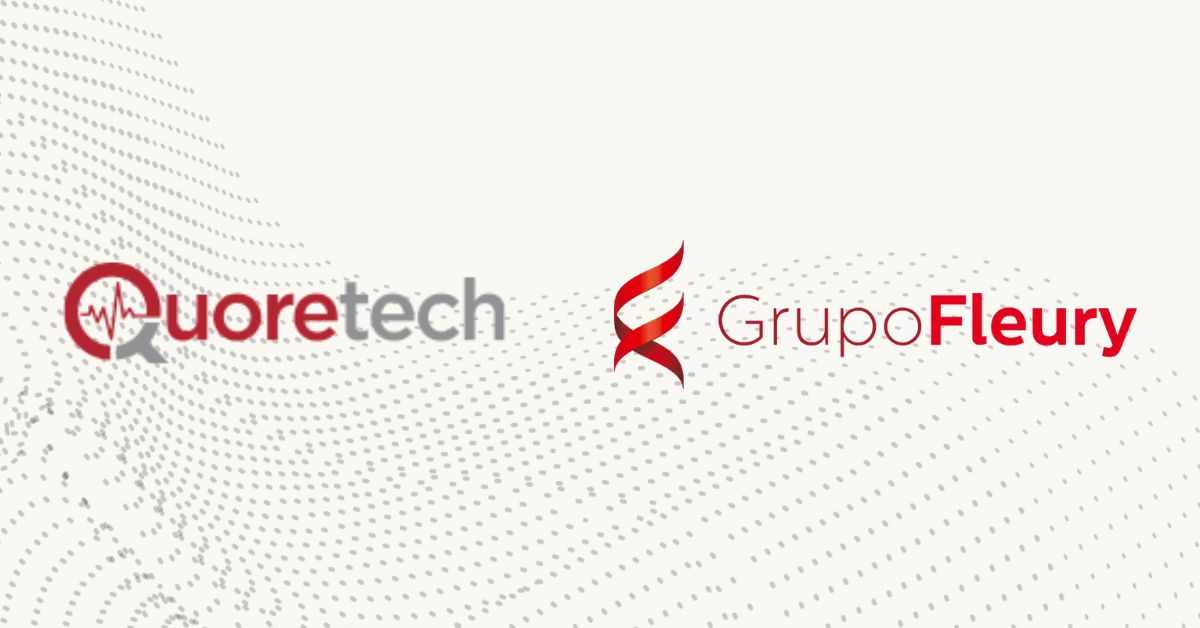Quoretech's wireless Holter is the new technology offered by Fleury Medicina e Saúde in its Mobile Care service in São Paulo to improve the patient experience.
Although the first uses of the new wireless holter will be in the mobile service in the city of São Paulo, over time the aim is that the current mobile devices used in the other Grupo Fleury brands, which operate in different regions of Brazil, will be replaced by the new ones.
"We have 26 active startups in 14 different areas of the company, supporting us to maintain our pioneering spirit and quality. Starting to use the wireless holter in mobile care is a way of expanding our operations even further, bringing services to people who live in areas where the brands are not physically present, through their service units. What's more, with the pandemic, people have changed the way they relate to health services and have come to value home care even more. In the near future, we will be able to implement the technology in all our regional brands, extending this innovation to our clients throughout the country," adds Dr. Rizzatti.
Learn more about the wireless holter solution
One of the tests most requested by cardiologists, the holter is performed when there is a need to record the electrical activity of the heart. The test is extremely important for establishing the best clinical outcome, however, it is common for patients to report discomfort and difficulties in carrying out day-to-day activities throughout the process due to the wires connected to the chest, in addition to the equipment attached to the pants. With this in mind, the wireless ECG monitor adapts much better to the patient.
Manufactured by Quoretech, the new wireless holter device has a number of benefits, such as a diary app and a rechargeable battery - which eliminates the need for batteries, as well as being water-resistant, discreet and lightweight, resulting in greater comfort and improving the patient's journey. The technology uses Artificial Intelligence (AI), the Internet of Things (IoT) and distributed systems to provide an accurate online diagnosis with heart rate graphs, allowing the classification of beats for the final report and identifying complex ventricular or supraventricular ectopias, changes in heart rhythm and ventricular repolarization, among other changes.
"This is a modern information transmission system that avoids signal problems and interference. From a medical point of view, it expands the diagnostic possibilities, allowing for an efficient, precise and faster report. The Holter is an essential test for identifying atrial fibrillation, tachycardia, bradycardia and myocardial ischemia during daily activities, which is the lack of irrigation to the heart muscle due to possible obstructions in the coronary arteries and which can lead to a heart attack. It can also identify the cause of fainting, syncope, palpitations and other symptoms. Therefore, the more tools we can use to intensify patient care, facilitating diagnosis and the choice of appropriate treatment, the better," says Dr. Paola Smanio, cardiologist and medical manager of Cardiology at Fleury Medicina e Saúde.
"The main differential is undoubtedly the comfort and experience for the client. At Fleury, we are always looking to improve the patient journey, with innovative techniques and personalized care. We want to show that exams don't have to be stressful or uncomfortable; on the contrary, the closer the patient is to their routine, the more accurate the cardiological result will be," adds Dr. Daniella Bahia, Medical Director of Fleury Medicina e Saúde.
More on open innovation at Grupo Fleury
Grupo Fleury has always had innovation as an important component of its operations and when expanding this vision to contracting new services, some startups were essential, especially for optimizing reports.
Aidoc - the leading Israeli network of Artificial Intelligence (AI) solutions for medical imaging - has made it possible to implement an algorithm for prioritizing intracranial bleeding reports, routinely in Rio Grande do Sul, São Paulo, Rio de Janeiro, Bahia, Pernambuco and Rio Grande do Norte. Rapid diagnosis of this serious type of internal hemorrhage can make a difference in the treatment of possible sequelae. In this way, the team of more than 170 radiologists receives alerts of probable bleeding in order to prioritize the report.



